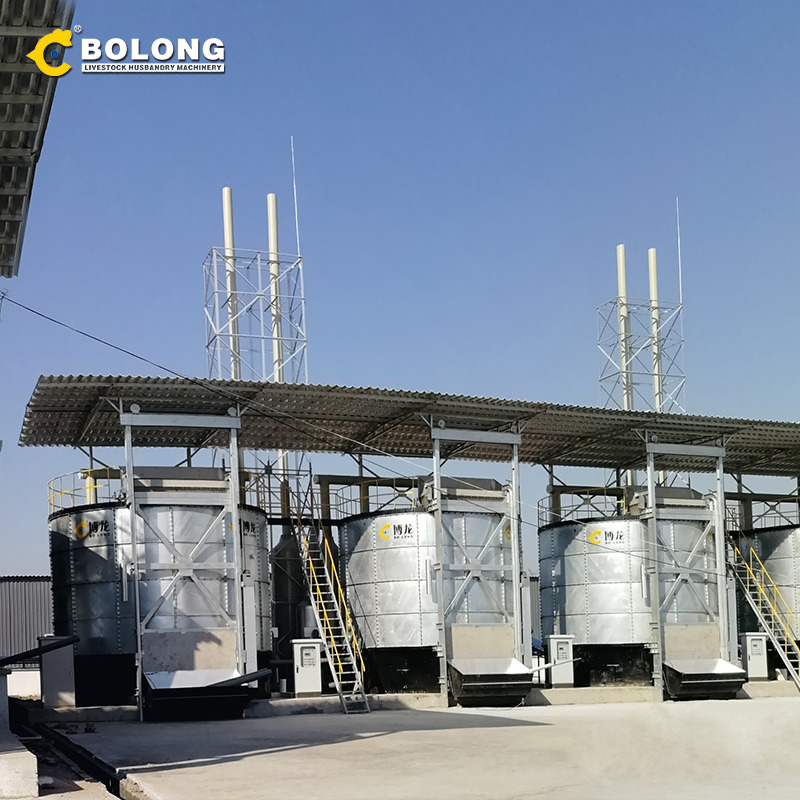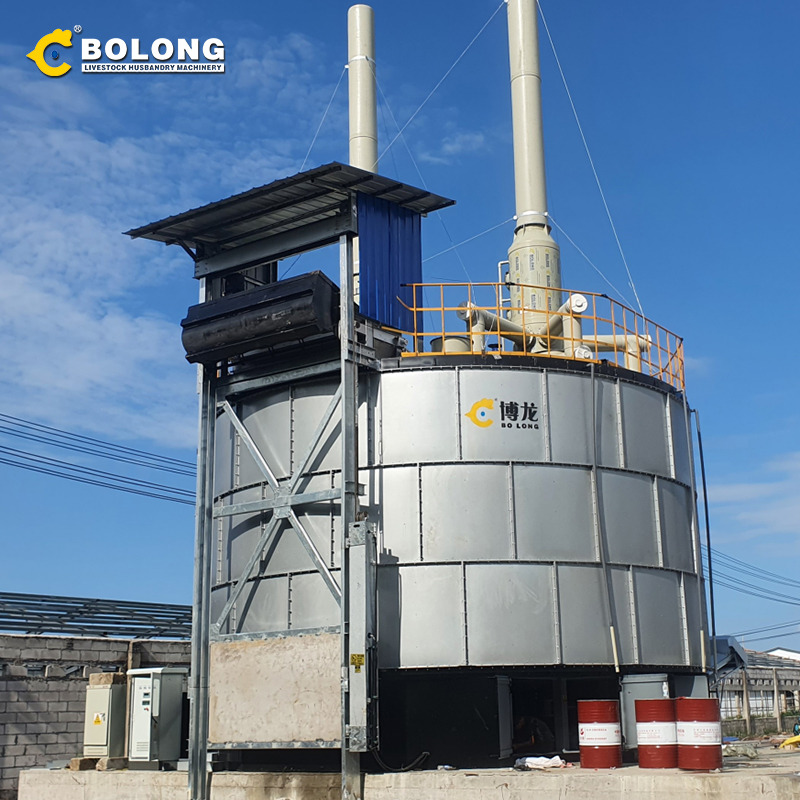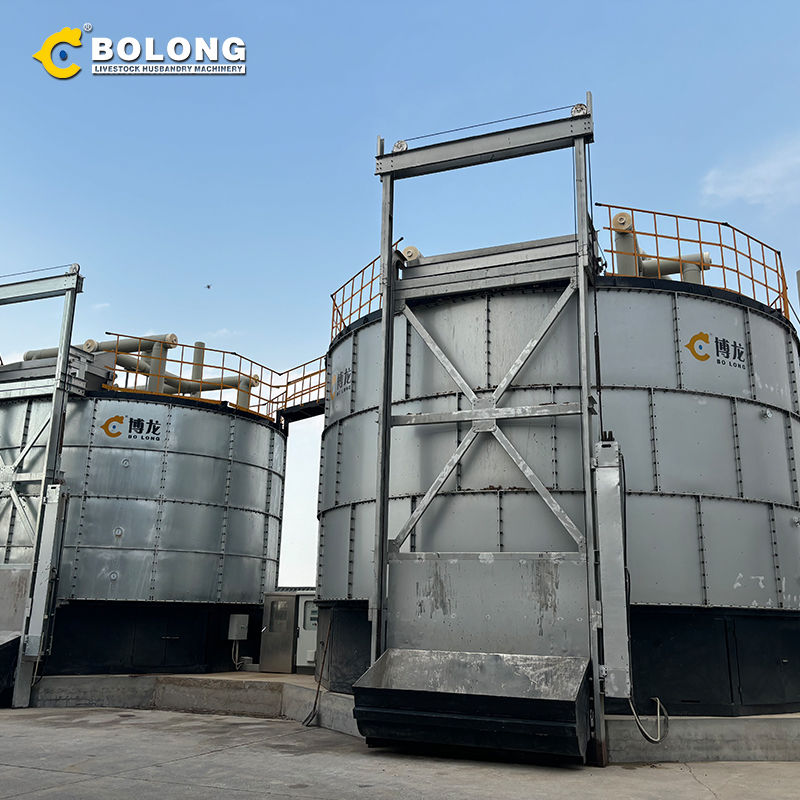Organic fertilizer composting machine is a kind of environmental protection equipment widely used in modern agriculture, which is used to convert organic wastes such as livestock and poultry manure, crop straws, food residues and other organic wastes into high-quality organic fertilizer through fermentation treatment. The equipment is efficient, safe, environmentally friendly as the core, can significantly improve the quality of fertilizer, reduce environmental pollution, is an important part of the agricultural circular economy. This article will detail the use of organic fertilizer composting machine and precautions to help users efficiently use this equipment.
Organic fertilizer composting machine through the control of temperature, humidity, oxygen supply and other conditions, the use of microbial decomposition, organic waste into stable, harmless organic fertilizer. The equipment is usually a closed structure, avoiding the odor diffusion and environmental pollution problems of traditional composting. The fermentation process is divided into three main stages:
① Warming stage: microorganisms begin to decompose organic matter, releasing heat, and the temperature inside the tank rises rapidly to 50-60℃.
② High-temperature stage: the temperature is kept at 55-70℃, pathogenic bacteria, insect eggs, etc. are killed and harmless treatment is completed.
③ Cooling stage: microbial decomposition is gradually completed, the temperature drops to room temperature, generating stable organic fertilizer.
Common organic fertilizer composting machine consists of the following parts:
①Tank: used to accommodate the fermentation of raw materials, usually made of corrosion-resistant materials.
②Stirring device: to evenly mix the raw materials to ensure that the fermentation process is sufficient.
③ Heating system: to raise the temperature inside the tank by electric heating or biological heat source.
④ Ventilation system: Provide oxygen to maintain an aerobic fermentation environment.
⑤ Exhaust device: exhaust gas is discharged and treated by deodorization system.
⑥Control system: monitor and regulate the temperature, humidity and oxygen concentration.

The following are the detailed steps for using organic fertilizer composting machine:
Raw material selection: choose suitable organic waste, such as livestock and poultry manure, crop residues, kitchen waste, etc.
Adjust the ratio: mix high-carbon (straw) and high-nitrogen (manure) raw materials, carbon and nitrogen ratio (C/N) control at 25:1 to 30:1.
Control the moisture: adjust the moisture content of raw materials to 50%-60%, avoid too dry or too wet.
Load the treated raw materials evenly into the composting machine, the loading volume is generally 70%-80% of the tank capacity, leaving space for fermentation.
Turn on the stirring device and heating system of the composting machine.
Set suitable fermentation parameters (temperature 55-65℃, fermentation time 5-10 days).
Turn on the ventilation system to ensure sufficient oxygen supply.
Monitor the temperature, humidity and oxygen concentration in real time through the control panel.
Adjust the frequency of stirring and ventilation to ensure that the raw materials are evenly heated and fully fermented.
After fermentation, turn off the equipment and take out the organic fertilizer when the temperature drops to room temperature.
Sieve the fertilizer, remove the residue that is not fully decomposed, and pack or store the finished product.
Avoid mixing plastic, metal and other non-organic impurities.
Use wastes that are not chemically contaminated to ensure the quality of the final organic fertilizer.
Too low fermentation temperature will lead to poor sterilization effect; too high temperature may inhibit microbial activity.
Maintain appropriate humidity, too high moisture will lead to anaerobic environment and produce bad smell.
Before operating the equipment, make sure the electricity and gas source are normal.
Regularly check the operation status of mixing device, heating system and ventilation equipment.
When discharging exhaust gas, use deodorizing equipment to avoid polluting the surrounding environment.
After the composting machine is used, clean the inside of the tank to prevent the accumulation of residues.
Regularly maintain the mixing shaft and control panel to extend the service life of the equipment.

The composting machine can significantly shorten the fermentation cycle, from the traditional composting months to 5-10 days.
The equipment is fully enclosed, eliminating the odor and sewage problems of traditional composting and protecting the environment.
The equipment covers a small area, very suitable for modern agriculture and urban organic waste treatment.
Through precise control of fermentation conditions, the organic fertilizer produced is of uniform nutrients and reliable quality.
Cause: Excessive moisture in raw materials or imbalance of carbon to nitrogen ratio.
Solution: Add dry materials (e.g. straw) or high-nitrogen materials (e.g. manure) appropriately.
Reason: insufficient oxygen supply or spoilage of raw materials.
Solution: Strengthen ventilation and mix adsorbent materials (e.g. charcoal powder).
Cause: Stuck mixing shaft, control system malfunction.
Solution: stop the machine for inspection and contact the equipment supplier for maintenance if necessary.

Organic fertilizer composting machine, as an important tool for agricultural waste treatment, can not only improve the quality of fertilizer, but also reduce environmental pollution and realize the resource utilization of agricultural waste. In actual operation, users need to strictly follow the steps, pay attention to the details of management, to ensure the efficient operation of the equipment. Through the scientific and rational use of the composting machine, not only can provide high-quality organic fertilizer for agricultural production, but also help the sustainable development of agriculture.